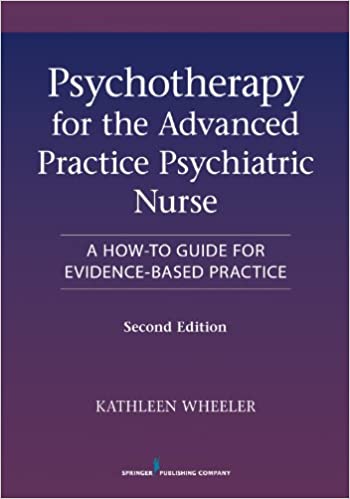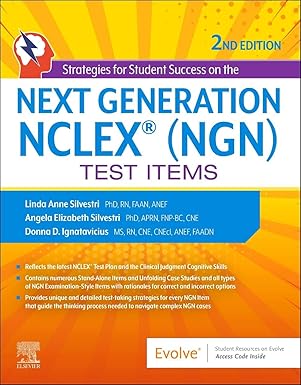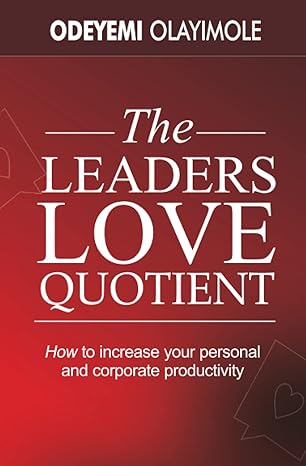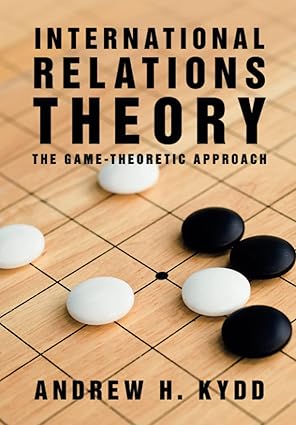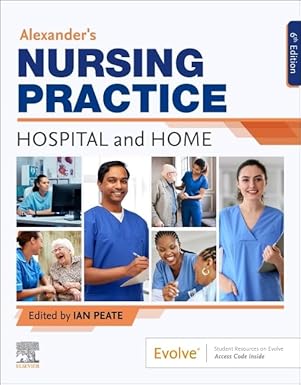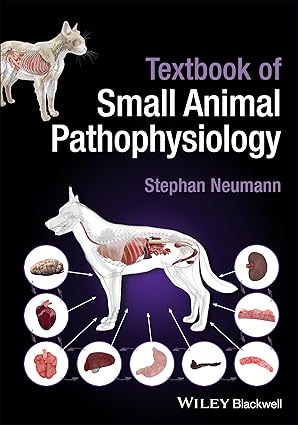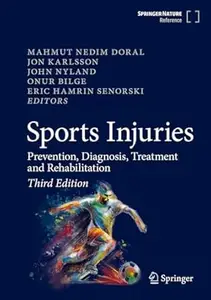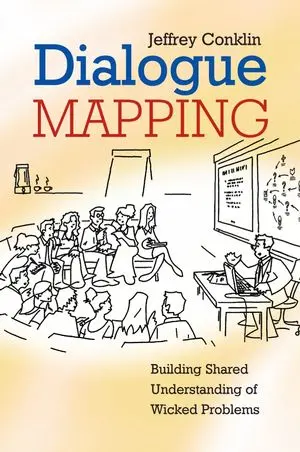"Dr. Wheeler has skillfully crafted a text that covers basic psychiatric principles and skills from developing a therapeutic relationship and assessing and diagnosing the client to providing evidence-based psychotherapy for a variety of patient populations... This text is an excellent primer for teaching therapy skills and, although targeting graduate psychiatric nursing students, would prove equally valuable for students of any mental health discipline. It is also a resource for experienced clinicians wanting to expand their understanding of trauma and how adaptive information processing might be used as an organizing framework for all psychotherapy."
--Linda Mabey, Journal of EMDR Practice and Research
DESCRIPTION
This is a how-to compendium of evidence-based approaches to practicing psychotherapy for both the experienced and neophyte advanced practice psychiatric nurse. This book integrates neuroscience with relationship science and unites disparate psychotherapeutic approaches into a model that is concise and straightforward, yet sufficiently comprehensive to provide a framework for practice. The most useful therapeutic models are highlighted with principles, and techniques of treatment for nurse psychotherapists and those with prescriptive authority. This second edition expands the award-winning first edition, providing guidelines, forms, and case studies to assist APPNs in deciding which treatment to use based on psychotherapy outcome studies and practice guidelines.
New Chapters in the Second Edition:
- Motivational Interviewing
- Dialectical Behavior Therapy
- Group Therapy
- Family Therapy
- Eye Movement Desensitization and Reprocessing (EMDR)
- Therapeutic Approaches for Addictions
- New CPT Codes & Reimbursement
Awards and Reviews for the First Edition:
APNA Media Award
AJN Book of the Year Award
5 Star Amazon Reviews
4 Star Doody Review
"Lays out a holistic paradigm for advanced psychiatric nursing (APN) practice by drawing upon a neuroscience of information processing, human development, attachment theory, and trauma. . . (and) explains the essentials of psychotherapy by melding principles underlying the therapeutic alliance, adaptive information processing (AIP), change, and a hierarchically arranged treatment format that fosters healing through the resolution of dysfunctional memory this important text holds true to the historical basis for psychiatric nursing being organized around phases and principles of the nurse-patient relationship."
Margaret England, PhD, RN, CNS, Perspectives in Psychiatric Care
"Wheeler offers the field a scholarly training manual. . . grounded in Shapiro's (2001) adaptive information processing paradigm . . .(where) the brain is viewed as an information processing system with innate self-healing mechanisms that regulate its internal environment to survive and to maintain a stable, constant condition through dynamic regulation."
Robert M. Greenfield, PhD, Journal of Trauma & Dissociation
چکیده فارسی
"دکتر ویلر به طرز ماهرانه ای متنی را ایجاد کرده است که اصول و مهارت های اساسی روانپزشکی از ایجاد یک رابطه درمانی و ارزیابی و تشخیص مراجع تا ارائه روان درمانی مبتنی بر شواهد برای جمعیت های مختلف بیمار را پوشش می دهد... این متن یک متن عالی است. آغازگر برای آموزش مهارتهای درمانی و اگرچه دانشجویان فارغالتحصیل پرستاری روانپزشکی را هدف قرار میدهد، اما برای دانشجویان هر رشته بهداشت روانی به همان اندازه ارزشمند خواهد بود. همچنین منبعی برای پزشکان با تجربه است که میخواهند درک خود را از تروما و اینکه چگونه پردازش اطلاعات تطبیقی ممکن است بهعنوان مورد استفاده قرار گیرد، گسترش دهند. یک چارچوب سازماندهی برای همه روان درمانی."
--لیندا مابی، ژورنال تمرین و تحقیقات EMDR
DESCRIPTION
این خلاصهای از روشهای مبتنی بر شواهد برای تمرین رواندرمانی برای پرستار روانپزشکی با تجربه و نوزاد تازهکار است. این کتاب علوم اعصاب را با علم روابط ادغام می کند و رویکردهای روان درمانی متفاوت را در مدلی مختصر و ساده و در عین حال به اندازه کافی جامع برای ارائه چارچوبی برای عمل متحد می کند. مفیدترین مدلهای درمانی با اصول و تکنیکهای درمانی برای رواندرمانگران پرستار و کسانی که دارای اختیار تجویزی هستند برجسته شدهاند. این ویرایش دوم، نسخه اول برنده جایزه را گسترش میدهد و دستورالعملها، فرمها و مطالعات موردی را ارائه میکند تا به APPNها در تصمیمگیری برای استفاده از کدام درمان بر اساس مطالعات نتیجه رواندرمانی و دستورالعملهای عملی کمک کند.
فصل های جدید در ویرایش دوم:
- مصاحبه انگیزشی
- رفتاردرمانی دیالکتیکی
- گروه درمانی
- خانواده درمانی
- حساسیت زدایی و پردازش مجدد حرکات چشم (EMDR)
- رویکردهای درمانی برای اعتیاد
- کدهای CPT جدید و بازپرداخت
جوایز و نظرات برای نسخه اول:
جایزه رسانه APNA
جایزه کتاب سال AJN
نظرات 5 ستاره آمازون
بررسی 4 ستاره Doody
"با تکیه بر علوم اعصاب پردازش اطلاعات، رشد انسانی، تئوری دلبستگی، و تروما، یک الگوی کل نگر را برای تمرین پرستاری پیشرفته روانپزشکی (APN) ارائه می کند. . . . (و) اصول روان درمانی را با ترکیب اصول زیربنایی توضیح می دهد. اتحاد درمانی، پردازش اطلاعات تطبیقی (AIP)، تغییر، و یک قالب درمانی مرتب شده سلسله مراتبی که شفا را از طریق حل حافظه ناکارآمد تقویت می کند، این متن مهم به مبنای تاریخی پرستاری روانپزشکی که حول مراحل و اصول پرستار-بیمار سازماندهی شده است، صادق است. رابطه."
مارگارت انگلستان، دکترا، RN، CNS، دیدگاهها در مراقبتهای روانی
"ویلر یک کتابچه راهنمای آموزشی علمی را به این رشته ارائه می دهد... مبتنی بر پارادایم پردازش اطلاعات تطبیقی شاپیرو (2001) ... (جایی که) مغز به عنوان یک سیستم پردازش اطلاعات با مکانیسم های خوددرمانی ذاتی که درونی آن را تنظیم می کند در نظر گرفته می شود. محیطی برای زنده ماندن و حفظ یک شرایط پایدار و ثابت از طریق تنظیم پویا."
رابرت ام. گرینفیلد، دکترا، ژورنال تروما و گسستگی
ادامه ...
بستن ...
